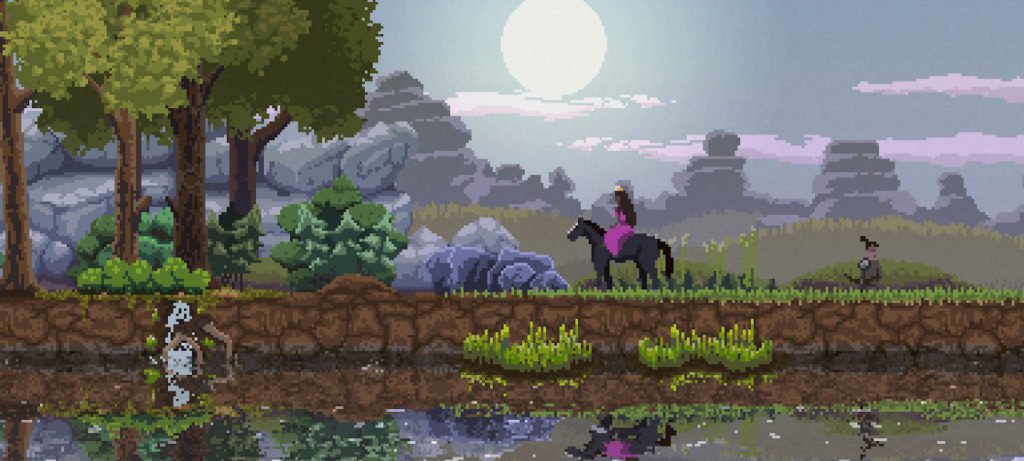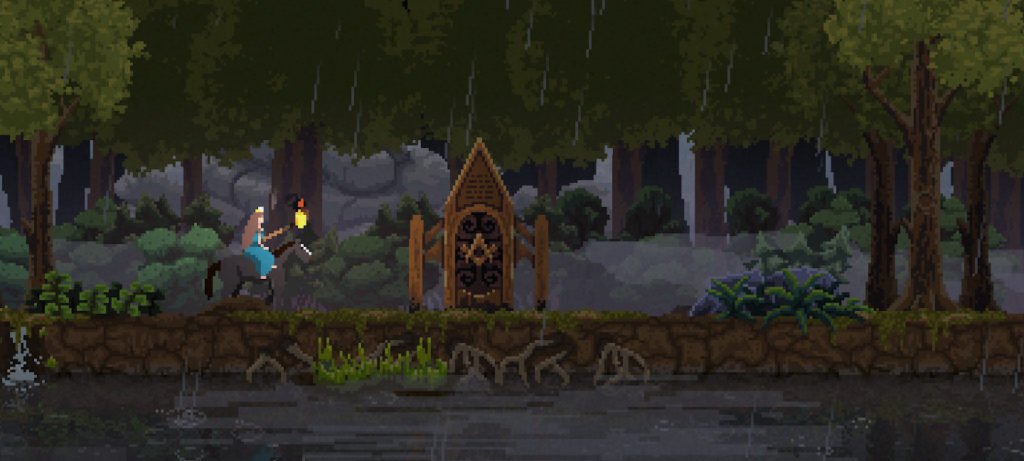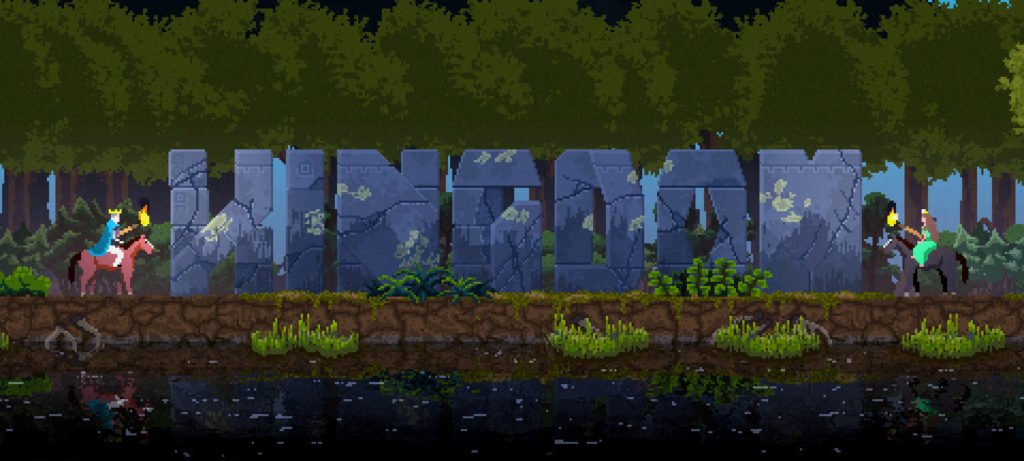The original plan for this article was to make it as a series of nesting paragraphs, where the first paragraph is at the start of the page, the second at the bottom, the next paragraph was in the second place, and so on so you had to keep scrolling from the top to the bottom back and forth with the conclusion being the paragraph in the centre of the whole article.
This was a cute idea, represented the gameplay loop of Kingdom, somewhat easy for me to do, clever, and an absolutely terrible idea to do for you. It’s a cute idea, and it invokes the game, but if I did that, every person with a screen reader would want to choke me.
Instead what I decided to do was introduce this game with a completely incomprehensible statement that implied some knowledge you’d have to have of the game going forward.
Don’t worry, I like this game.
Kingdom is resource managment kind of tower defensey game, where you’re running a little economy, directing people to cut down trees, build buildings, fight enemies, you know, all that classic stuff. It happens in real time, so I guess it’s a kind of real time strategy game, and like other real time strategy games, I am shockingly bad at it.
The two things that makes Kingdom stand apart are its dimensionality and its interface, expressed in the same game conceit; instead of a top-down view of buildings being laid out in a map, the entire game is two dimensional, like a platformer; your directions are not north, south, east and west, but left and right. You also don’t have an omniscient vision of it, a high and removed character distant from the problems of the world, and instead you are the actual crowned royal of this place, riding to the extreme sides of your town.
As it gets bigger, the game gets harder, not just because of increasing complexity, but just because going back and forth between the two edges of your kingdom takes more time. A problem on the left needs to be addressed and that means you’re not addressing the problem on your right. You are the central repository for the resources, too – you need to collect the gold that pays for the upgrades or the repairs or the recruitment, and you need to go do the recruitment as well.
The game is also exceptionally pretty; a detailed, lush, low-resolution art style that relies on its level of detail to abstract away information and instead leave you to interpret the art from what you can see. That interpretation is important as part of how the game works, too: Kingdom is a game that seems to rely on you being uncertain, making the game deliberately obtuse because that obtuseness is fundamental to how you engage with the world, and it’s even part of the difficulty curve.

I found that the challenge of this game was always dancing between the question of did that do something different while I didn’t notice, or did I forget to do something I should have done? The game is full of these questions, at least in the learning phase of things, and even now after hours of play, I’m pretty confident I’m not done learning. There’s stuff I think you could maybe do, but I don’t know how to do it, I don’t know how to tell the game I want to do it. I’m sure once you’re an expert and know exactly how the game behaves, the game becomes a very different kind of experience.
The game you get to start with, the game that makes the majority of my play of Kingdom, is the game that gives obtuse feedback for reliable rules. I don’t think the game is rolling dice to see how things work for me; I don’t think that things are functioning differently from game to game; I think that the game doesn’t need to do that. It instead makes my perspective limited, and makes the responses to my behaviour happen in a way where my failure is not one of randomness but is instead a failure of perspective. I think things work one way and there may be more refined, more specific answers to the questions I ask the game, but I’m at least not categorically wrong.
The bulk of my play here, and what I’ve enjoyed, has been the play of discovery.
We make a lot of fuss about tutorialising, where you can use a game to teach the player basic behaviours, teach them the rules of the game. We make even more fuss about how great games are that don’t do this visibly, with games like Half-Life and Elden Ring praised for their willingness to avoid giving the player explicit and consistent reminders for how to play the game. To think of those as ‘tutorials’ though, things that ramp you into ‘the game proper’ is to waste an opportunity.
Kingdom is a game where the process of learning it is a different game and the discovery is, itself fun.


1 Trackback